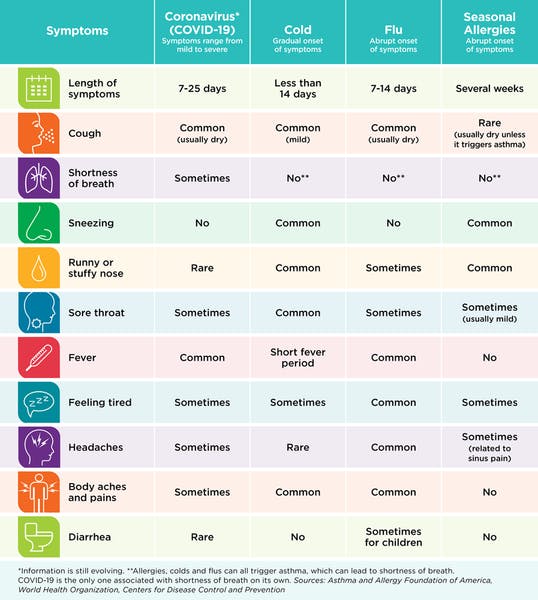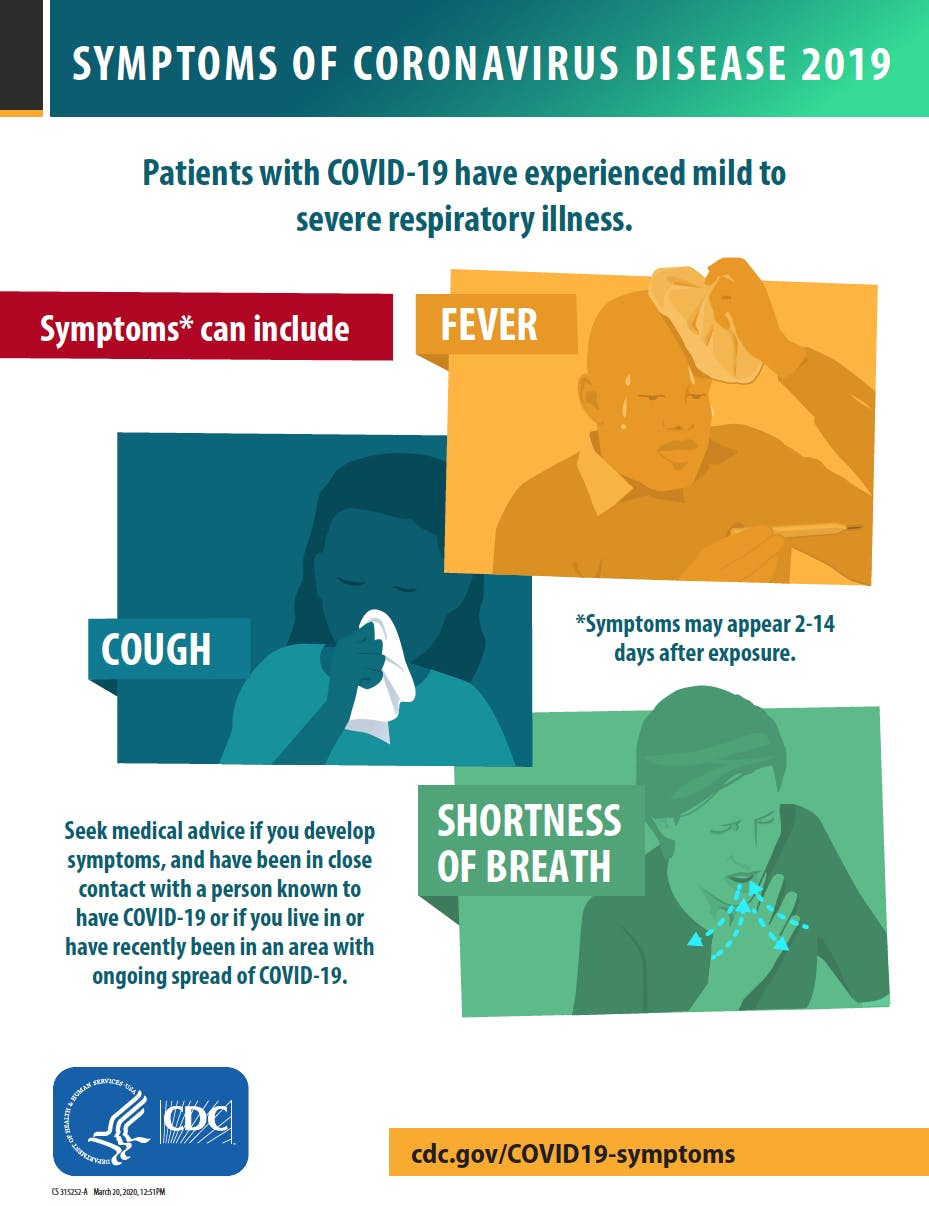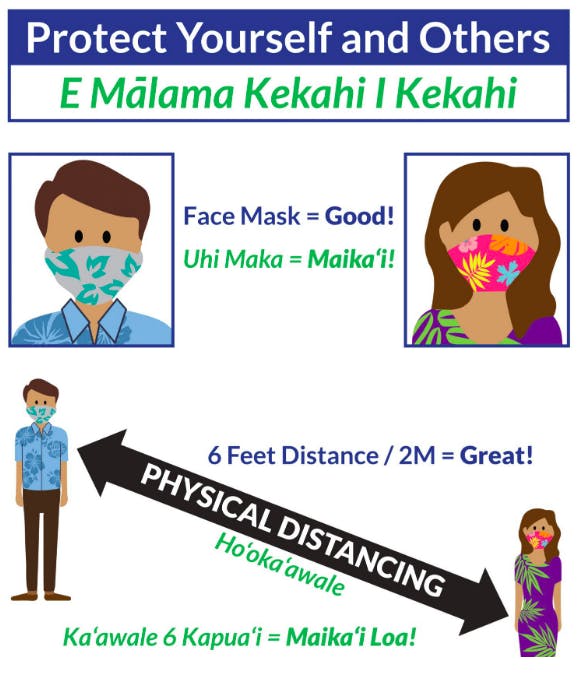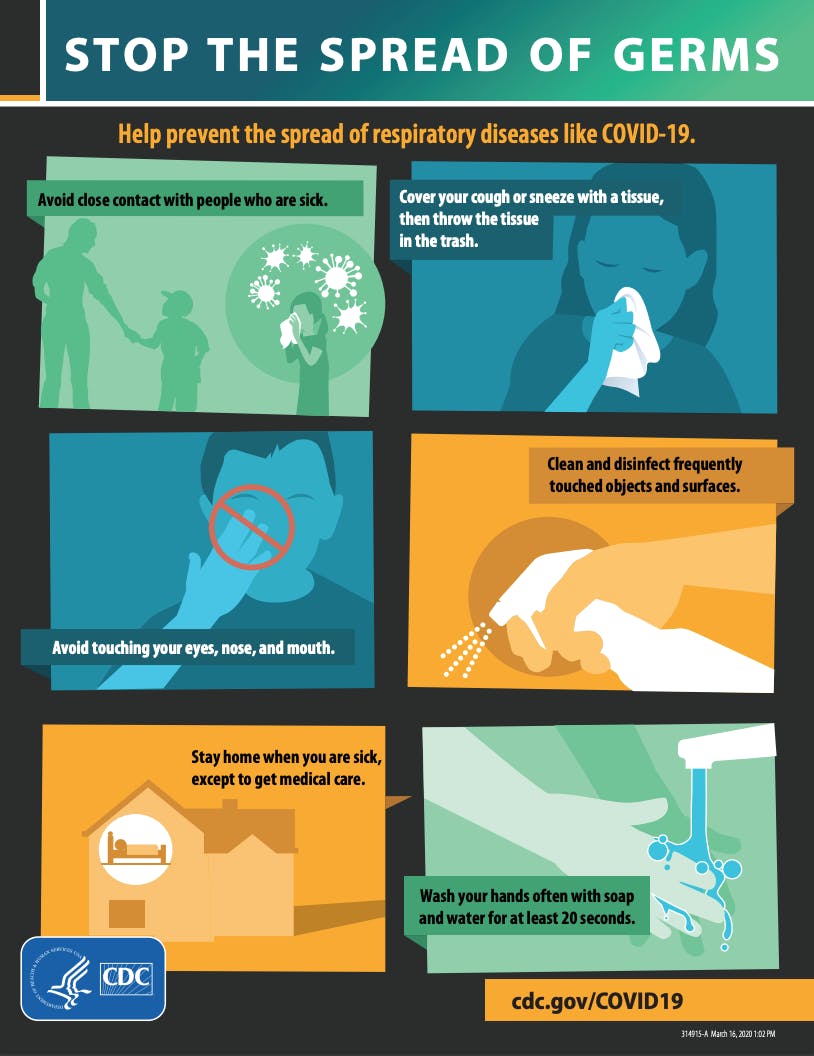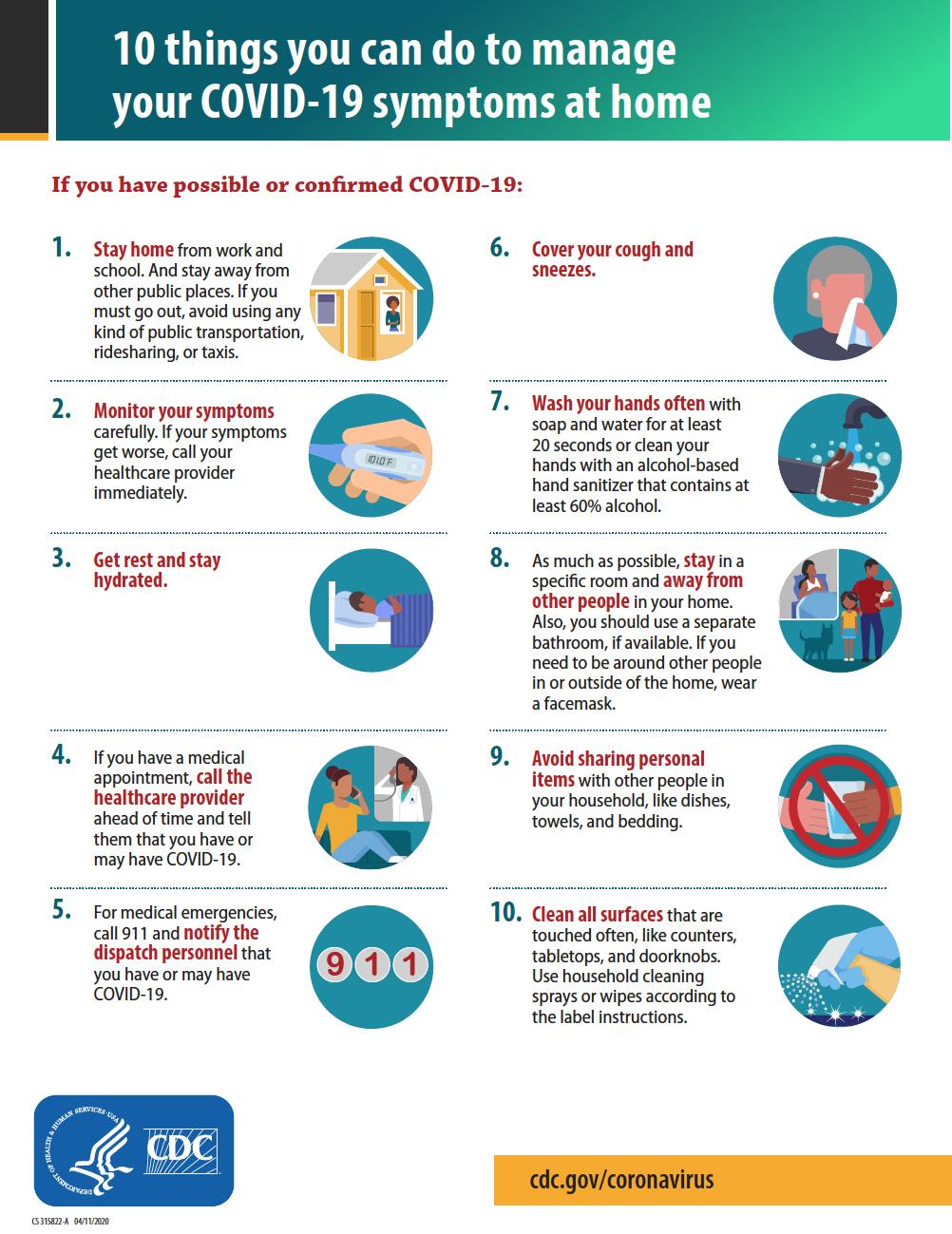Symptoms of COVID-19
People with COVID-19 have had a wide range of symptoms reported—ranging from mild symptoms to severe illness.
These symptoms may appear 2-14 days after exposure (based on the incubation period of MERS-CoV viruses):
- Fever or chills
- Cough
- Shortness of breath or difficulty breathing
- Fatigue
- Chills, shivering
- Muscle pain or body aches
- Headache
- Sore throat
- Loss of taste or smell
- Congestion or running nose
- Nausea or vomiting
- Diarrhea
*This list does not include all possible symptoms. The Centers for Disease Control and Prevention (CDC) will update this list as more is learned about COVID-19.
When to Seek Medical Attention
If you develop emergency warning signs for COVID-19, get medical attention immediately.
- Trouble breathing
- Persistent pain or pressure in the chest
- New confusion
- Bluish lips or face
- Inability to wake or stay awake
*This list does not include all possible symptoms. Consult your medical provider for any other symptoms that are severe or concerning to you.
Call 911 if you have a medical emergency. Notify the operator that you are seeking care for someone who has, or may have, COVID-19. If possible, put on a cloth face covering before medical help arrives.
For more information on how to care for yourself and protect other people in your home and community, visit the CDC website.
Who Should be Tested? Not Everyone Needs to Be Tested for COVID-19.
Here is some information that might help in making decisions about seeking care or testing.
- Most people have mild illness and are able to recover at home.
- There is no treatment specifically approved for this virus.
- Testing results may be helpful to inform decision-making about who you come in contact with.
- CDC has guidance for who should be tested, but decisions about testing are at the discretion of state and local health departments and/or individual clinicians.
For additional steps to care for yourself and to help protect other people in your home and community, visit the CDC website.
How to Get Tested?
If you have symptoms of COVID-19 and want to get tested, try calling your state or local health department or a medical provider. While supplies of these tests are increasing, it may still be difficult to find a place to get tested.
How to Prevent the Spread of COVID-19
Following simple steps can prevent the spread of COVID-19 and reduce its impact on our communities.
Stay home if you start to feel ill.
Unless you are going out to seek medical attention, stay at home if you are feeling sick, especially if you have symptoms of fever or cough.
Watch these videos to learn more about staying home when you are sick and the importance of isolation and quarantine.
Avoid close contact with people (social distancing).
- Try to keep your distance from other people (at least 6 feet or 2 arms lengths)
- This is especially important for people who are at higher risk of getting very sick and experiencing severe disease.
- Watch this video to learn more about social distancing.
Wash your hands often.
Use soap and water for at least 20 seconds, especially after going to the bathroom; before eating; and after blowing your nose, coughing, or sneezing.
If soap and water are not readily available, use an alcohol-based hand sanitizer with at least 60% alcohol. If your hands are visibly dirty, then make sure to use soap and running water since sanitizing products will not remove the dirt.
Watch this video to learn more about how washing your hands can prevent disease.
Clean and disinfect
Clean frequently touched objects and surfaces using a household cleaning spray or wipe.
Everyone can pitch in by practicing routine cleaning of frequently touched surfaces (for example: tables, doorknobs, light switches, handles, desks, toilets, faucets, sinks) with household cleaners. Use EPA-registered disinfectants that are appropriate for the surface and follow the label instructions.
Avoid touching your eyes, nose and mouth.
Avoid touching your eyes, nose, and mouth with unwashed hands.Avoid touching your eyes, nose, and mouth with unwashed hands.
Cover your coughs and sneezes.
Use a tissue, then throw the tissue in the trash. If you don’t have a tissue, use your elbow.
- Cover your mouth and nose with a tissue when you cough or sneeze or use the inside of your elbow.
- Throw used tissues in the trash.
- Immediately wash your hands with soap and water for at least 20 seconds. If soap and water are not readily available, clean your hands with a hand sanitizer that contains at least 60% alcohol.
Get the flu shot.
People with seasonal influenza will exhibit similar signs and symptoms as COVID-19 (fever and cough). If more people are protected against influenza, this will reduce confusion and the burden on our healthcare system.
Resources for information above: Centers for Disease Control and Prevention, and the Hawaii State Department of Health.
